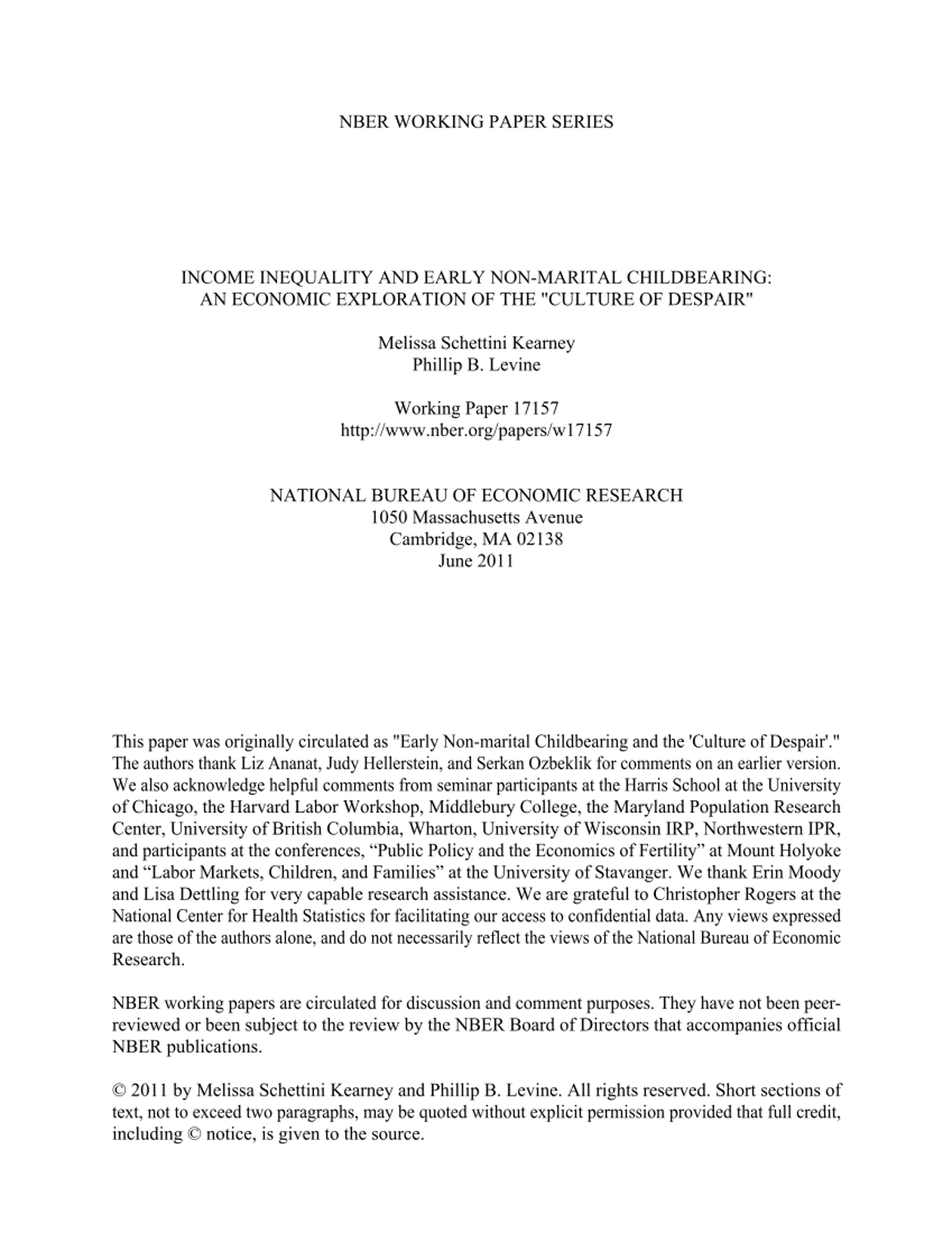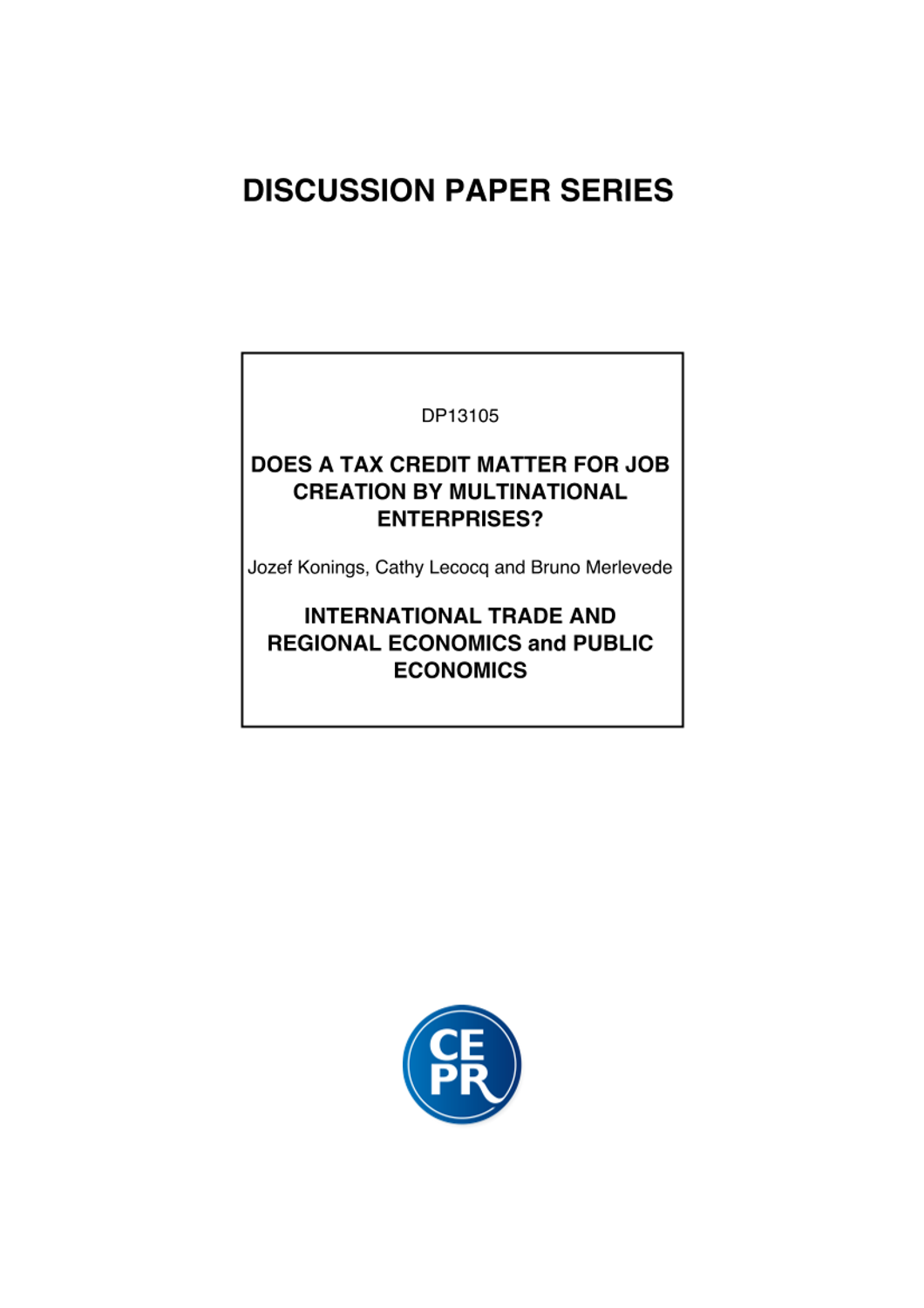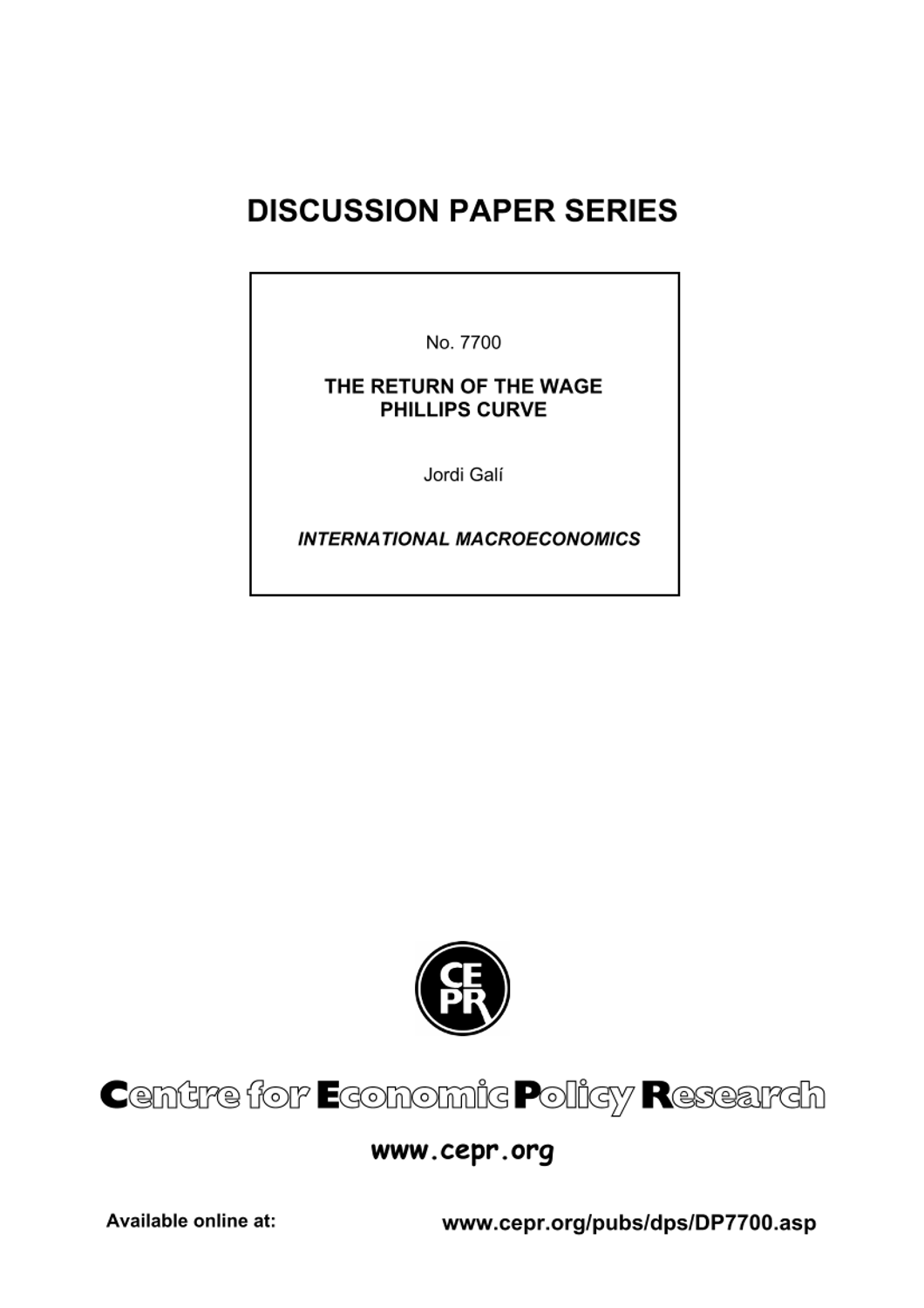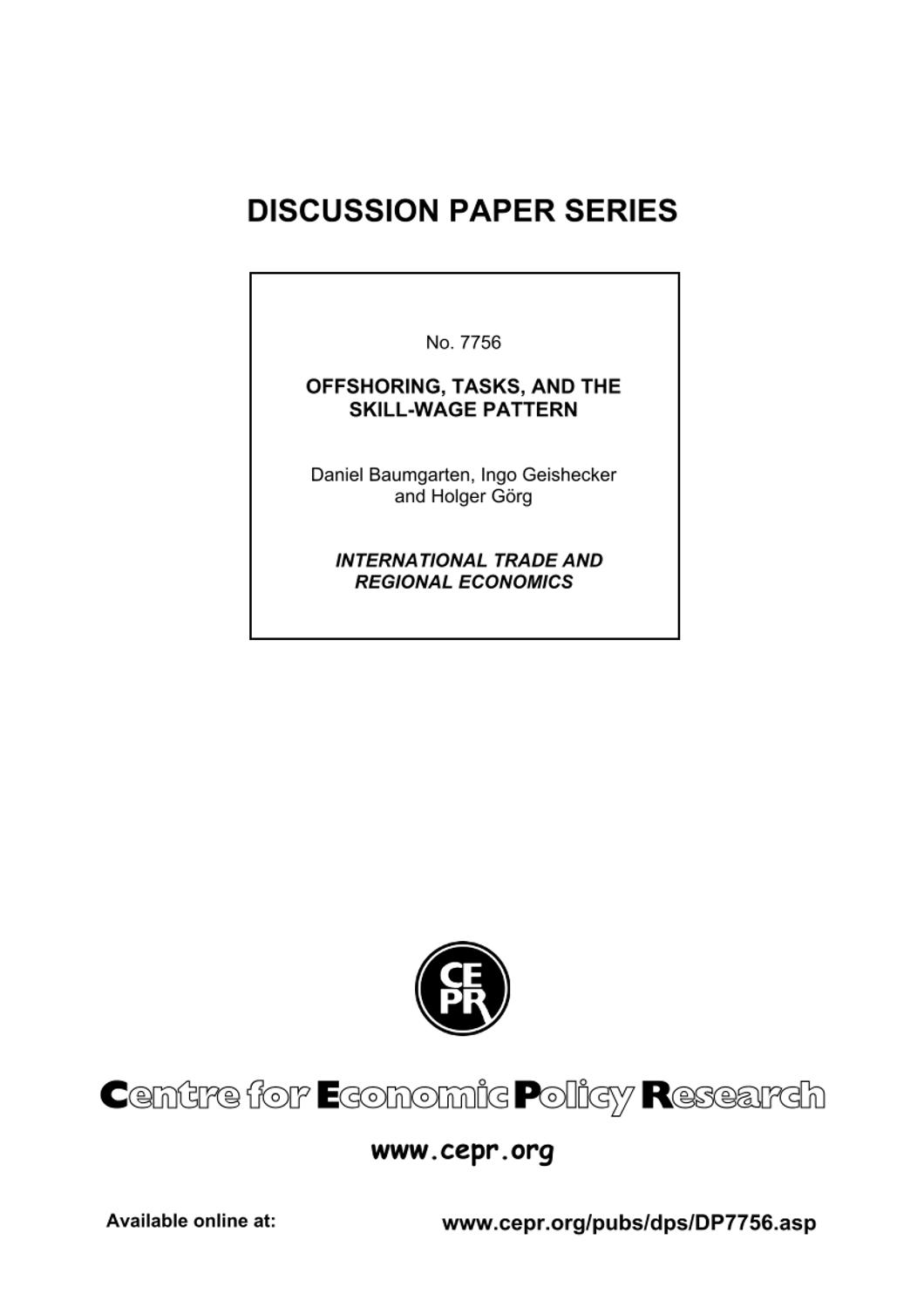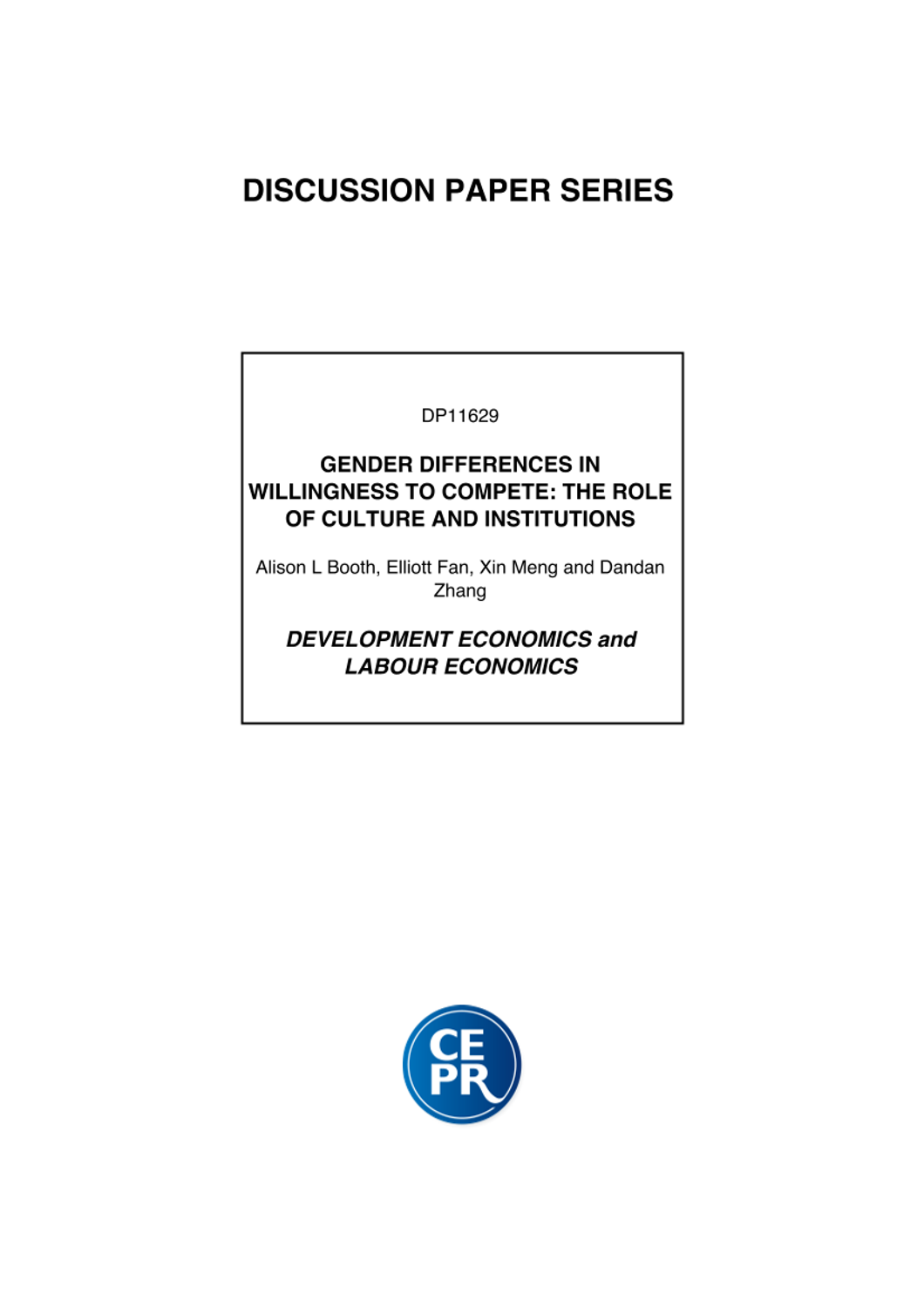
연구보고서CEPR Discussion Papers 11629
Gender differences in willingness to compete: the role of culture and institutions
- 청구기호
- DP 11629
- 발행사항
- London : CEPR, 2016
- 형태사항
- 49 p. :. PDF file ;. 597 KB
- 일반주기
- 2016. 11
- 바로가기
소장정보
| 위치 | 등록번호 | 청구기호 / 출력 | 상태 | 반납예정일 |
|---|---|---|---|---|
이용 가능 (1) | ||||
| E0002139 | 대출가능 | - | ||
이용 가능 (1)
- 등록번호
- E0002139
- 상태/반납예정일
- 대출가능
- -
- 위치/청구기호(출력)
책 소개
In the laboratory experiment reported in this paper we explore how evolving institutions and social norms, which we label ''culture'', change individuals'' preferences and behaviour in mainland China. From 1949 China experienced dramatic changes in its socioeconomic institutions. These began with communist central planning and the establishment of new social norms, including the promotion of gender equality in place of the Confucian view of female ''inferiority''. Market-oriented reforms, begun in 1978, helped China achieve unprecedented economic growth and at the same time Marxist ideology was gradually replaced by the acceptance of individualistic free-market ideology. During this period, many old traditions crept back and as a consequence social norms gradually changed again. In our experiment we investigate gender differences in competitive choices across different birth cohorts of individuals who, during their crucial developmental-age, were exposed to one of the two regimes outlined above. In particular we investigate gender differences in competitive choices for different birth cohorts in Beijing using their counterparts in Taipei (subject to the same original Confucian traditions) to control for the general time trend. Our findings confirm: (i) that females in Beijing are significantly more likely to compete than females from Taipei; (ii) that Beijing females from the 1958 birth cohort are more competitive than their male counterparts as well as more competitive than later Beijing birth cohorts; and (iii) that for Taipei there are no statistically significant differences across cohort or gender in willingness to compete. In summary, our findings confirm that exposure to different institutions and social norms during the crucial developmental age changes individuals'' behaviour. Our findings also provide further evidence that gender differences in economic preferences are not innately determined.

